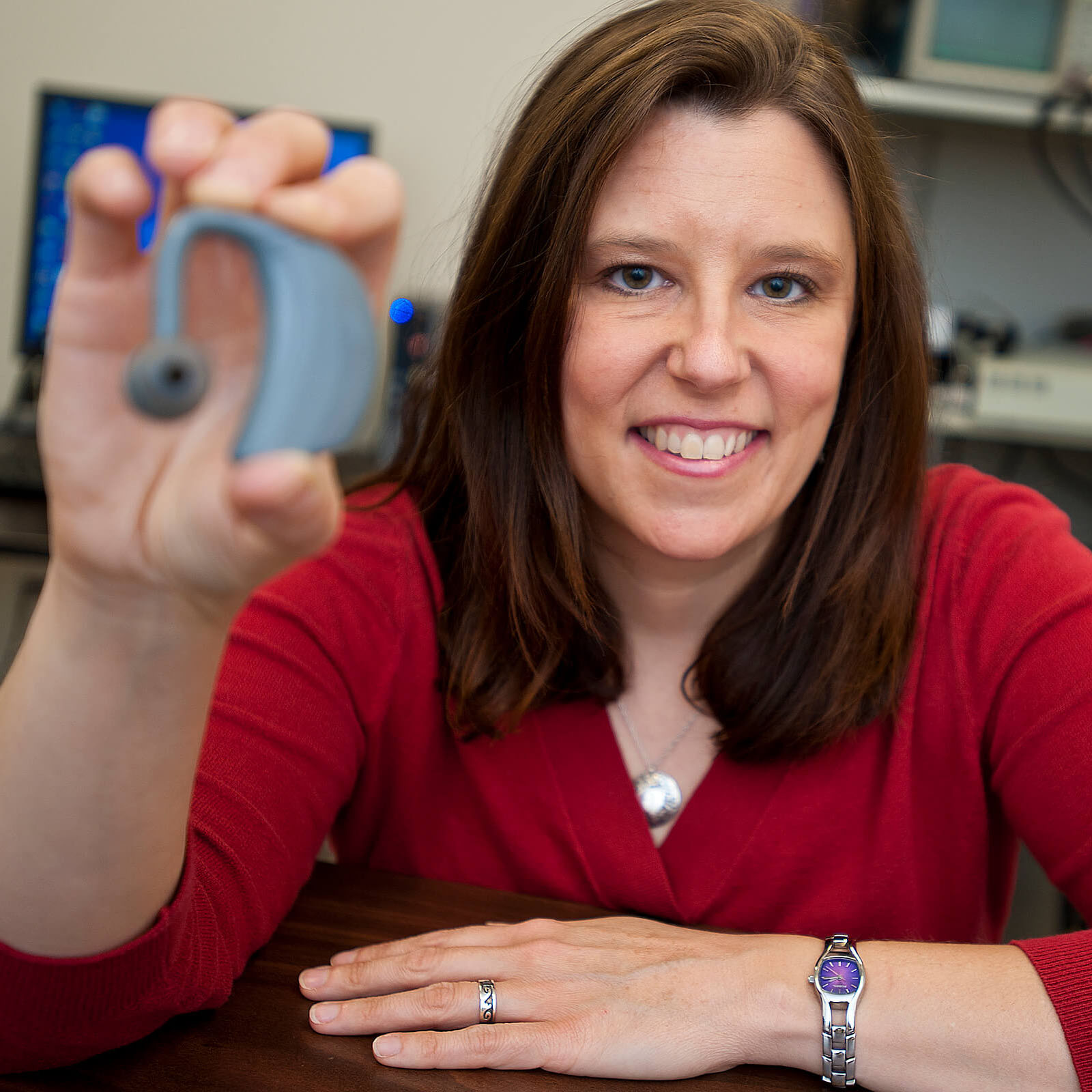Support grows nationwide for medical device to improve communication in Parkinson’s disease

SpeechVive uses a reflex to improve communication. The device plays noise in a user’s ear when they are talking, which elicits the reflex, resulting in speech that is automatically louder, clearer and lower.
“Since the wearable device elicits a reflex, the patient does not need to remember to use therapy techniques to communicate in everyday life,” said Jessica Huber, a professor in Purdue’s Department of Speech, Language, and Hearing Sciences, who developed SpeechVive. “When people with Parkinson’s disease cannot be heard or understood, they withdraw from communication exchanges, leading to social isolation. This device makes it possible for patients to continue to communicate with their loved ones well into their disease.”
SpeechVive Inc. commercialized the Purdue device to help the more than 1 million people in the United States who are diagnosed with Parkinson’s, one of the most common degenerative neurological diseases. Veterans can receive the device through their local VA hospital as a part of their health care benefits.
“We are working to develop additional routes for individuals to obtain the device,” said Huber, who is also the associate dean for research in Purdue’s College of Health and Human Sciences. “I enjoy developing and testing devices and therapies that can improve the quality of life for people with Parkinson’s disease.”
Huber also is a faculty associate of the Purdue Institute for Integrative Neuroscience, which includes around 100 faculty engaged in neuroscience-related research. PIIN is one of six life interdisciplinary life sciences research centers harnessing the university’s unique strengths to improve the quality of life for people around the globe. PIIN aims to address the greatest challenges in mental illness and neurological disorders by revolutionizing diagnostic and treatment capabilities.
Huber presented the technology in October during PIIN’s “Night at the Museum” event at The Field Museum in Chicago. Innovators from across Purdue shared their technologies and discoveries during the event.
SpeechVive Inc is one of the companies selected for the Purdue Foundry’s Double Down Experiment, which consists of nine businesses ready to reach the next level with technologies designed to advance the world.
The nine businesses were selected by the Purdue Foundry staff from among the 253 companies the organization has helped during its six years in operation. The Double Down companies range from precision agriculture to education to medical innovations.
Source: Support grows nationwide for medical device to improve communication in Parkinsons disease
